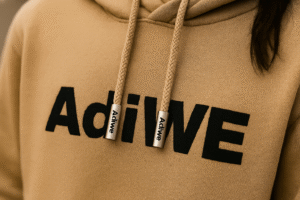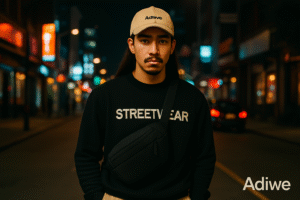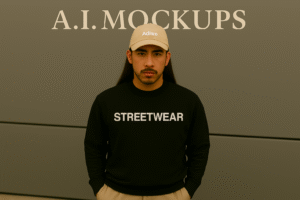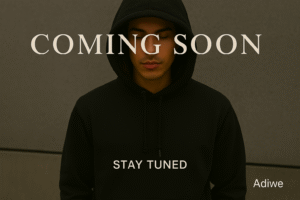Are you excited to launch your streetwear, but unsure about production times? Unclear timelines can disrupt your plans and impact your brand's debut. Understanding the factors affecting production duration is essential for smooth execution.
Producing custom streetwear pieces typically takes 4 to 12 weeks. This timeframe covers crucial stages like sampling, material sourcing, manufacturing, and quality control. The exact duration varies based on design complexity, order size, and fabric availability.
That 4 to 12-week window might seem broad. You are probably wondering what makes one order quicker than another. As the owner of Adiwe, a B2B factory, I've guided many brands, including clients like Fifty Fifty from the UK, through these production schedules. It's helpful to understand the different phases and what influences them. Let's explore these elements to give you a clearer expectation for your own line.
How Long Does Custom Clothing Take?
Do you need custom clothing but find the overall timeline a bit hazy? Setting unrealistic expectations can lead to frustration and missed deadlines for your brand. Knowing the complete process from start to finish helps you plan more effectively.
Custom clothing, from the initial design concept to the final finished product ready for shipping, often takes 6 to 16 weeks. This comprehensive period includes design finalization, tech pack creation, sourcing all materials, sampling rounds with potential revisions, bulk production, and thorough quality assurance.
!
The journey of creating custom clothing has several distinct stages before we even start bulk manufacturing. I always walk my clients through these steps.
-
Design Finalization and Tech Pack Creation
Your design must be completely ready for production. This means you need a detailed "tech pack." A tech pack is like the main instruction manual for your garment. It includes exact measurements for all sizes, fabric types, construction methods, artwork placement, and specific color codes. Creating a comprehensive tech pack might take a few days or even a couple of weeks, particularly if you are new to this process. If the tech pack isn't clear or is missing information, it will cause delays immediately, as my team at Adiwe will need to ask for clarifications.
-
Material Sourcing
Once the tech pack is crystal clear, we start sourcing your selected fabrics and trims. Trims include things like zippers, buttons, and custom labels. If you choose materials that are readily available in the market, this stage might take about 1 to 2 weeks. However, if your design requires custom-dyed fabric, specially milled materials, or unique accessories that aren't standard stock, this sourcing stage can extend to 4 to 6 weeks, or sometimes even longer. This is because we might need to place special orders with our network of specialized suppliers.
-
The Crucial Sampling Stage
Sampling is the exciting part where your design physically comes to life for the first time. Based on your detailed tech pack, we produce a sample garment. This usually takes about 1 to 3 weeks. You will then receive this sample to review. It's quite common for revisions to be needed, especially for more complex pieces like the hoodies often ordered by Fifty Fifty. Each round of revisions and new sample creation can add another 1 to 2 weeks to the timeline. This initial phase, before bulk production even begins, can easily take 4-8 weeks or more.
| Stage | Typical Duration | Key Influencing Factors |
|---|---|---|
| Design & Tech Pack | 1-3 Weeks | Complexity of design, clarity of information, client response time |
| Material Sourcing | 1-6+ Weeks | Fabric/trim availability, custom dyeing/milling needs, supplier lead times |
| Initial Sampling | 1-3 Weeks | Garment complexity, workshop current schedule, material arrival |
| Revisions (per round) | 1-2 Weeks | Number and type of changes requested, clarity of feedback |
How Long Does Clothing Production Take?
Are you wondering about the actual manufacturing time for your clothes once designs are set? Uncertainty in this specific phase can make it very difficult to plan your inventory, marketing campaigns, and launch dates effectively. Let's clarify the steps involved in the bulk production timeline.
The actual clothing production phase, which begins after all samples have been approved, typically takes 3 to 8 weeks. This duration is influenced by the total quantity of your order, the complexity of each garment (like intricate stitching or multiple components), the factory's current production capacity, and the detailed quality control procedures we implement.
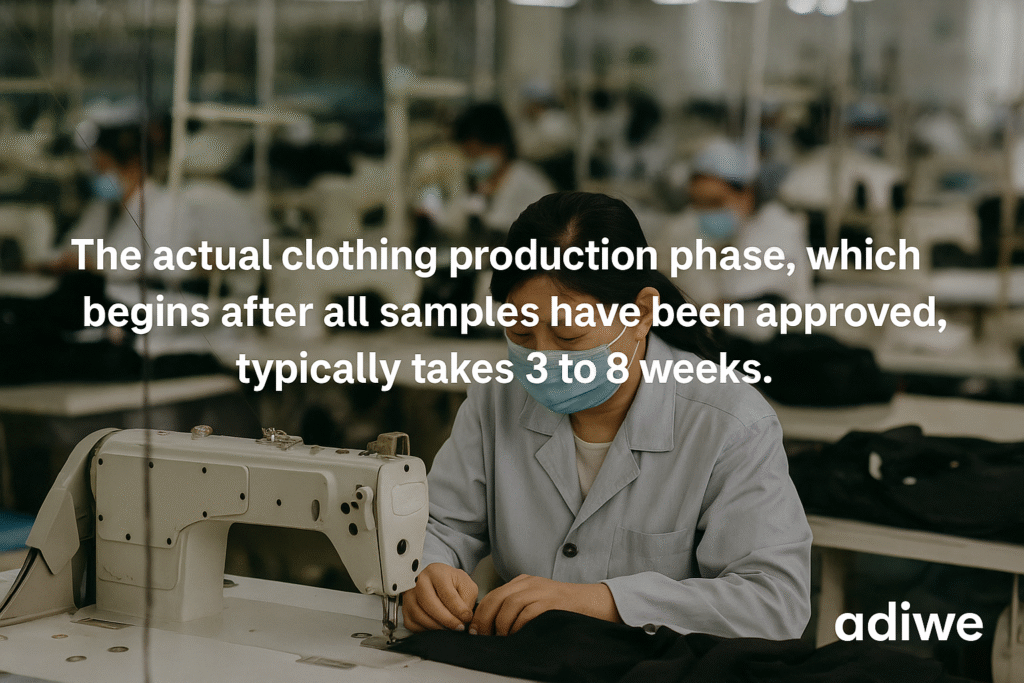
Once you give the green light on your final sample, we shift into bulk production. This is where your entire collection is manufactured. I always explain to clients like Fifty Fifty that this phase also has its own set of steps and timelines.
-
Pre-Production Preparations
Before any fabric is cut for your main order, a lot of preparation happens behind the scenes. My team finalizes the patterns for all the different sizes you need – this is called "grading." We also place orders for and confirm the arrival of all the bulk fabric and trims, if these weren't already secured during an extended sourcing phase. Then, we schedule your production run on the factory floor. This "gearing up" process can take about 1 to 2 weeks, especially if we are coordinating fresh deliveries of specific materials for your order.
-
Cutting, Sewing, and Assembly
This is the core manufacturing stage where your garments are physically made. Large rolls of fabric are laid out and cut precisely according to the graded patterns. We often use automated cutting machines for accuracy, but very intricate parts might be cut by hand. After cutting, the individual fabric pieces go to our skilled sewing teams. For a brand like Fifty Fifty, whose hoodies often feature complex paneling and require specific, high-quality craftsmanship, this sewing stage is extremely important. The time taken here depends heavily on how complex each garment is and the total number of units in your order. For example, a production run of 500 complex hoodies might take 2 to 4 weeks on the sewing lines.
-
Finishing, Quality Control (QC), and Packing
After the garments are fully sewn, they move to the finishing department. This stage includes attaching any final trims (like drawcord aglets or final buttons), pressing the garments, and sometimes sending them for special washing treatments if required by your design. Then, our dedicated Quality Control (QC) team inspects each piece, or a statistically significant percentage based on an agreed Acceptable Quality Limit (AQL). They meticulously check for stitching quality, measurements against the tech pack, print or embroidery accuracy, and overall construction. Any items that don't meet our high standards are either corrected or rejected. Finally, the approved items are carefully folded, tagged (if this is part of our service for you), and packed according to your specific instructions. This final stage can take 1 to 2 weeks to complete thoroughly.
| Production Step | Est. Time (e.g., 500 complex hoodies) | Notes |
|---|---|---|
| Pre-Production Setup | 1-2 Weeks | Includes pattern grading, bulk material final confirmation & arrival |
| Cutting | 2-4 Days | Depends on number of fabric layers, pattern complexity, cutting method |
| Sewing & Assembly | 2-4 Weeks | This is the main labor component; highly dependent on garment complexity |
| Finishing & Washing | 3-7 Days | Only if special washes or treatments are part of the design |
| Quality Control & Pack | 1-2 Weeks | Involves thorough inspection, individual folding & careful packing |
How Long Does It Take to Make Custom T-Shirts?
Do you think custom t-shirts are always super fast to produce because they seem simpler? While they are generally quicker than more elaborate garments, underestimating the timeline for even t-shirts can lead to unexpected delays. Let's look at the specifics for t-shirt production.
Custom t-shirts, from the point of design approval to being ready for shipping, can often be made in 2 to 6 weeks. Although they are simpler in construction than items like jackets or complex hoodies, factors such as print complexity, fabric choice (especially if custom), order volume, and any special finishing touches still significantly influence the overall production timeline.
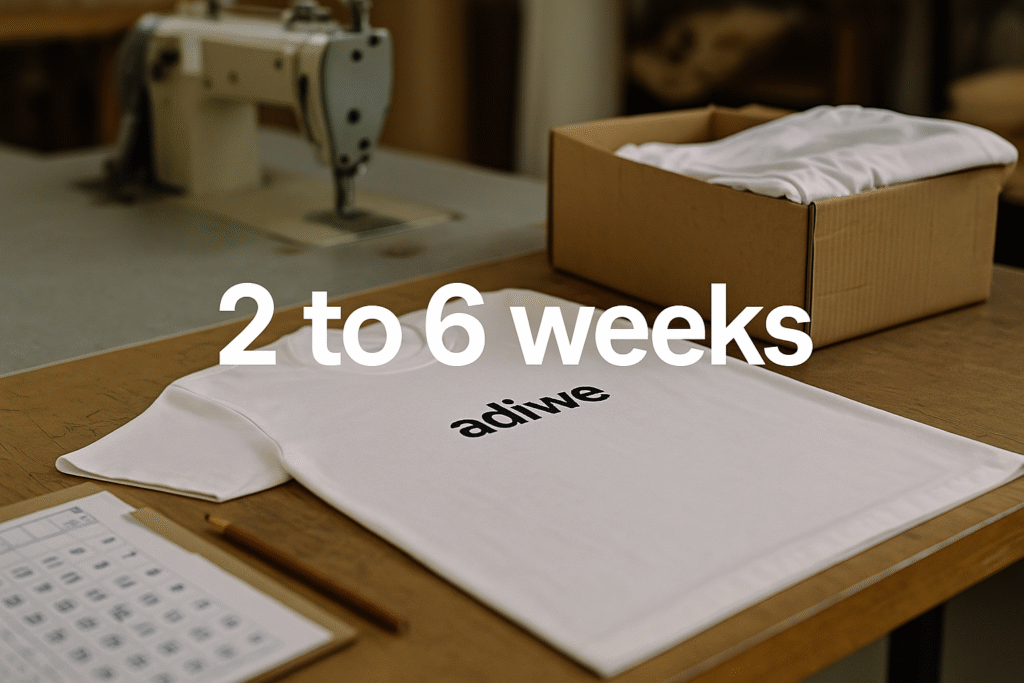
Custom t-shirts are indeed one of the quicker items to produce in the streetwear world, but "quick" still means there's a defined process. I often produce large quantities of t-shirts for various brands.
-
Simpler Construction, Faster Flow
When you compare a t-shirt to a multi-panelled hoodie or a lined jacket, it's clear that a t-shirt has fewer pattern pieces. The seam constructions are also generally simpler. This means that the cutting and sewing stages are naturally faster. However, "simpler" does not mean we compromise on quality. My teams at Adiwe still ensure that neckbands are set correctly, hems are perfectly even, and the overall fit and feel match your exact specifications.
-
Impact of Print Method and Complexity
The printing technique you choose for your t-shirt graphics has a big impact on the timeline. A straightforward one-color screen print on an order of 500 t-shirts is relatively fast once the screens are prepared. However, if your design involves a multi-color, oversized DTG (Direct-to-Garment) print, or if it requires multiple print placements (like on the front, back, and a sleeve), each shirt will take longer to process. Embroidery on t-shirts, while less common for very large graphics, also adds to the production time per piece. We always factor in the setup time for each unique print job and the run time per shirt.
-
Quantity, Fabric, and Special Finishes
A small batch of, say, 50 t-shirts might move through our production line quite quickly, especially if the fabric you've chosen is a standard type we keep in stock. A much larger order, for example, 5,000 t-shirts, will naturally take longer to complete, even if the sewing time per piece is low, simply due to the sheer volume. If you require custom-dyed fabric for your t-shirts to match a specific Pantone color, or if you want special washes (like a vintage wash or an enzyme wash for softness), this adds to the pre-production and finishing times, similar to how it affects more complex garments. Even adding custom woven labels, specific hang tags, or particular fold-and-bag requirements adds to the time taken in the final stages of production.
| T-Shirt Production Factor | Timeline Influence | Example |
|---|---|---|
| Basic Construction | Generally Faster Cutting & Sewing Stages | Standard crew neck, short sleeve t-shirt |
| Print Type & Complexity | Simple Screen Print (Faster) vs. Multi-Color DTG (Slower) | A 1-color chest logo versus a full-color, detailed photographic print |
| Fabric Sourcing | Stock Fabric (Faster) vs. Custom Dye/Mill (Slower) | Using our standard 180gsm cotton jersey vs. a Pantone-matched color |
| Order Quantity | Smaller runs generally faster overall (but higher unit cost) | An order of 100 pieces versus an order of 2,000 pieces |
| Special Finishes | Adds time for additional processing steps | Custom woven neck labels, garment wash for softness, individual bagging |
Conclusion
Production times for custom streetwear vary based on many factors. Providing clear tech packs, making timely decisions, and understanding factory processes will help ensure your unique apparel is delivered on schedule for your brand's successful launch.

